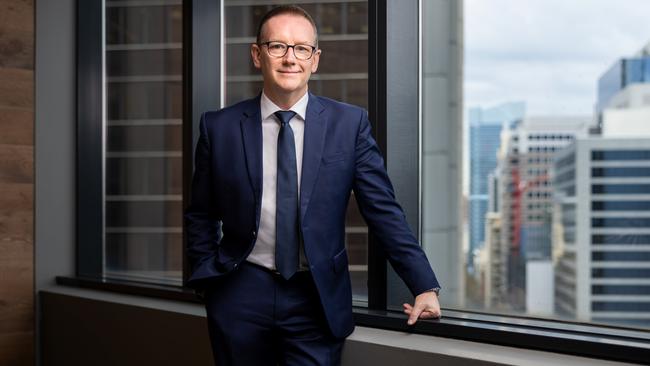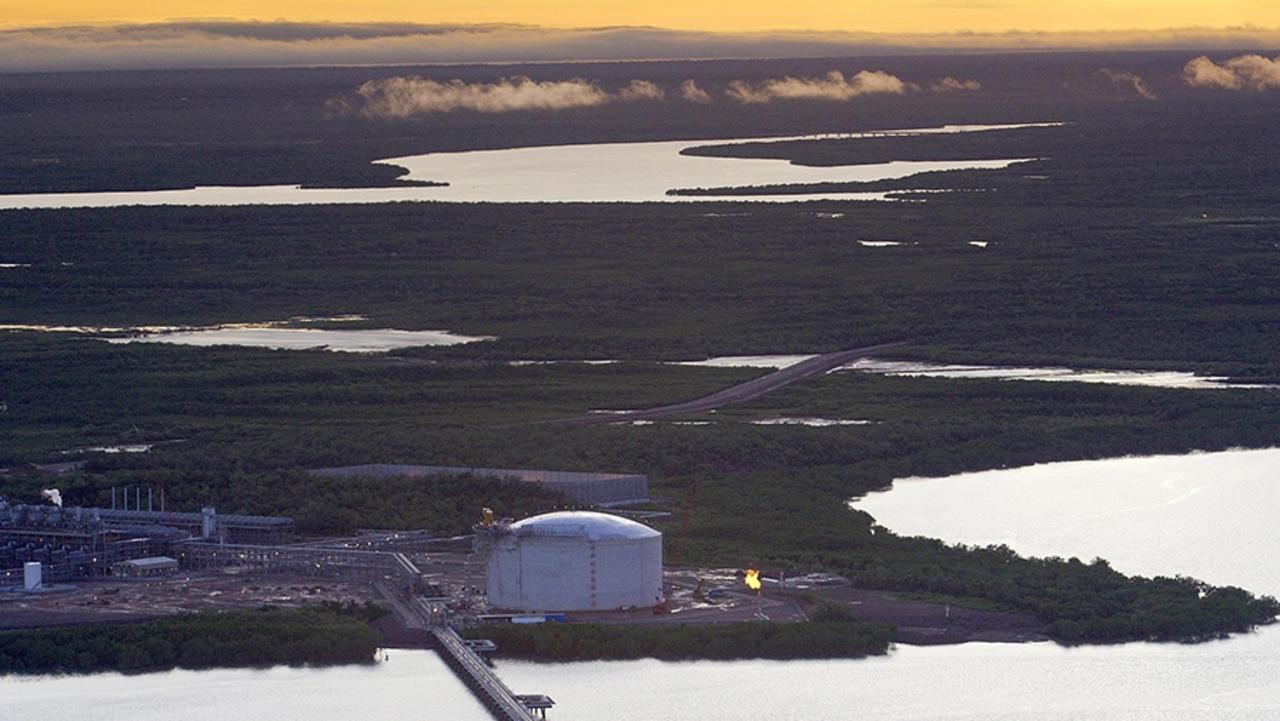ASX well placed to benefit from global rebound in IPO activity, BDO partner Sebastian Stevens
The strength of super funds and ability to stand out from the pack are driving more and more foreign businesses to list on the ASX instead of home markets.

Business
Don't miss out on the headlines from Business. Followed categories will be added to My News.
The Australian Securities Exchange appeal as a haven for mid-tier businesses is likely to underpin an expected rebound in initial public offerings from early 2025 as more foreign companies scope out a listing down under.
More foreign businesses have opted to list on the ASX instead of home markets in recent years due to the rising strength of superannuation funds coupled with the better ability to stand out from the pack.
In the past six months there have been 15 IPOs including the listings of Canada’s Capstone Copper and US-based Metals Acquisition Corp, with Pittsburgh-based Alcoa Corporation to join the ranks following its takeover of Alumina.
Nine of the IPOs so far this year have been mining or mining related companies, with uranium and lithium explorer Infini Resources, up 270 per cent on its issue price and Sun Silver, which is developing a project in the US, rallying 173 per cent. Capstone Copper Corp shares have climbed 13 per cent since they started trading on April 2.
Three more miners are due to hit the boards this week, with uranium explorer Piche Resources listing on Monday and Brazilian rare earths play Axel Ree and gold and lithium explorer Ordell Minerals on Tuesday, according to the ASX.
BDO private equity and transaction services national leader Sebastian Stevens told The Australian that the ASX had placed itself as a go-to destination for mid-tier companies looking to rise to prominence at a faster rate and tap into Australia’s trillion-dollar super sector.
“We used to have competition from Singapore and Hong Kong, but Singapore has become property centric and Hong Kong has lost its sparkle after China tightened its controls over the past few years, while the competitor in Europe, UK’s AIM market, has not performed well either,” he said.
“International companies will play a larger role in the ASX going forward because this funnelling of money from our compulsory superannuation system into the public markets is increasing. The fundamentals are that you’re going to run out of Australian companies of quality to be on the ASX to satisfy the fund manager’s allocation and this opens up opportunities for international companies.”
As of June 30 there are more than 230 foreign listings on the ASX with 60 from New Zealand, followed by 45 American companies and 18 from Canada. Singapore, UK and Israel also have a strong presence on the ASX. High profile foreign companies that have opted for the ASX include Life360, ResMed, Amcor and Newmont.
Mr Stevens said the bourse had the highest number of secondary companies of any major index, and that it more attuned to growth companies because of the country’s super funds and a large volume of mining companies.
“It is a great market for mid-market businesses. The ASX and investors are also attuned to giving subsequent capital raises. If you’re on NASDAQ or most other large exchanges and you want to raise subsequent capital, it’s often frowned upon,” he said.
“The ASX has the highest number of secondary capital raises globally which is very helpful for tech and other businesses that constantly need growth capital.”
ASX promotes itself as a destination that offers access to capital and global indices, competitive valuations and a springboard into an entity’s home market because “earlier-stage companies with $5bn market capitalisation or less, can struggle to attract investor attention” in large home markets. As at April 2023, entry to the S&P/ASX 300 was gained at $US266m free float-adjusted market capitalisation versus $US12.7bn for the S&P 500.
Mr Stevens said that valuations on the ASX were friendly for companies that would not qualify elsewhere, and that once you made an S&P index in Australia the business generally had more coverage, performed better access to global fund managers because they can only invest in indexes.

“If you’re a mid-market company in the US, NASDAQ is unlikely to be an option as you’re not going to get institutional coverage unless you're on an S&P index and these start at c$6bn. If you're not on the S&P index, the valuation multiples are typically low so there’s little point in the listing, whereas you can come to Australia, get a higher valuation, get some profile and credibility, and if they get to a sufficient size they can dual list on an exchange like NASDAQ,” he said.
“It means that the valuations that you’re getting in Australia are virtually double NASDAQ if you’re less than $3bn or $4bn.”
San Francisco-based Life360, which provides a family location safety app, listed on the ASX in 2019, and has become an ASX 200 company with a market capitalisation of $3.7bn and share price growth of 219 per cent.
Mr Stevens, who helped to bring the company to market here, said the problem for US companies that remained in the US was that because they could not get on an index they then needed another round of venture capital funding which could dilute the ownership structure for the founders.
“VC funding in the States is really complicated with preferred stock and a complicated capital structure and that means those founders just keep getting relegated down the capital chain and it is not great for them, but it is for venture capitalists,” Mr Stevens said.
“For a founder on the ASX, the benefit is that everyone that invests is an ordinary shareholder and there is no preference for VC funds or anyone else.”
IPO activity has been subdued for 18 months as vendor expectations and public market pricing have failed to align amid uncertainty around interest rates and inflationary pressures. BDO, which undertakes the highest number of IPOs in Australia, has spent more time in the US to scope out potential for tech companies to list here instead of on Wall Street.
Mr Stevens expected that once the market recovered, the ASX was well placed to benefit from more international companies.
“The biggest challenge has always been why come to Australia? The explanation as to why a US company would list on the ASX, that’s the bigger challenge. Once they understand the increased valuations, the cost of listing being lower and the liquidity being better as well as the follow-on raises being easier, then for many it almost becomes a no-brainer,” he said.
In 2023 there were 32 new listings on the ASX, raising a total of $847m – well below the 87 new listings in 2022 which raised just over $1bn.
More Coverage
Originally published as ASX well placed to benefit from global rebound in IPO activity, BDO partner Sebastian Stevens





